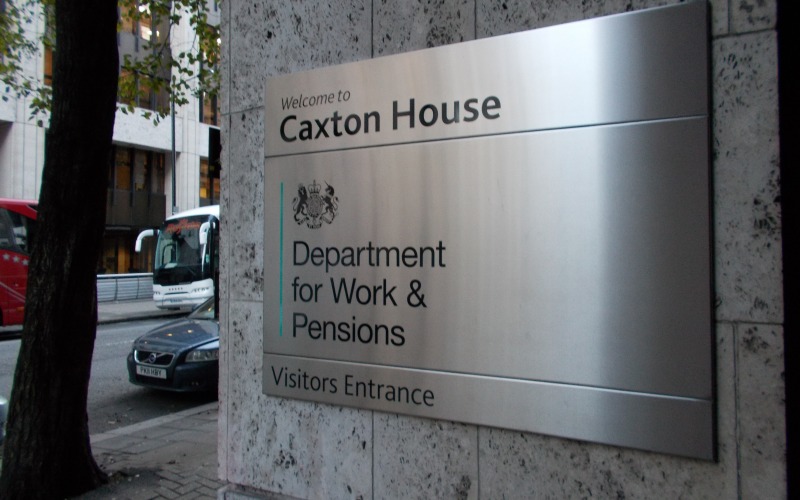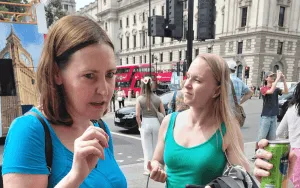A minister has suggested that the government would be doing a “great disservice” to disabled people if it stopped sanctioning their out-of-work benefits.
The comment by Alok Sharma, the employment minister, came in correspondence with the Commons work and pensions committee as part of its inquiry into the government’s “harmful and counterproductive” benefit sanctions regime.
The committee’s report, published this week, calls on the government to “urgently re-assess” the regime.
The committee concludes in its report: “Of all the evidence we received, none was more compelling than that against the imposition of conditionality and sanctions on people with a disability or health condition. It does not work. Worse, it is harmful and counterproductive.”
But in a letter to the committee, Sharma had dismissed the idea of exempting disabled people from benefit sanctions.
He pointed to the low proportion of claimants of employment and support allowance (ESA) in the support group – for those found to have limited capability for work-related activity, and who are not subject to any sanctions – who move into work every month (less than one per cent).
He said this showed that “when provision or support is voluntary the take up is extremely low” and therefore “to impose a blanket ban which exempts all disabled people from any form of conditionality would be doing this group a great disservice”.
He also said that ministers “do not think it would be appropriate” to introduce a blanket ban on all sanctions and conditions for disabled people awaiting their work capability assessment (WCA) under the new universal credit, even though such a ban is in place under the existing ESA system.
Sharma said in his letter that universal credit regulations already allow work coaches to “tailor conditionality, apply easements, set ‘voluntary’ work related requirements… and ‘switch off’ work related requirements altogether” when appropriate.
But the committee’s report warns that universal credit rules mean that claimants “could be required to look for work for up to 35 hours a week before any assessment of whether they are even capable of doing so”.
It points to evidence from the Child Poverty Action Group, which said that these claimants “rarely have their claimant commitment suitably tailored”.
One woman with a mental health condition was subject to “full conditionality” for nine months while she waited for her WCA, the committee was told by the charity Mind.
In its evidence to the committee, Inclusion London said there was “sufficient evidence to raise such serious questions about the current regime that it should be stopped urgently”.
It pointed to “mounting evidence of the harm that sanctions are causing to benefit claimants and negative impacts on our wider communities as a result.
“Besides tragic examples of individuals ending or attempting to end their lives or dying as a direct result of sanctions, statistics show for example the link between increased use of sanctions and higher foodbank use.
“One in five cases peer reviewed by the DWP following deaths linked to benefit cuts involved sanctions.”
The committee calls in its recommendations for DWP to “immediately” halt all benefit conditions and sanctions for three groups: claimants found to have limited capability for work; those with a valid fit note which states they are unable to work; and universal credit claimants awaiting a WCA who have a fit note saying they are unable to work.
In his letter to the committee, Sharma also refused to introduce a gentler system for all claimants with mental health conditions, arguing again that it would be “inappropriate” to introduce a blanket policy and “may not be in their best interests” because there was “a strong evidence base showing that work is generally good for physical and mental health and well-being”.
The evidence Sharma pointed to in support of his claim was a single piece of research published 12 years ago by the Department for Work and Pensions (DWP) itself, and which was closely linked to the discredited biopsychosocial model of disability.
But one witness who provided written evidence to the inquiry painted a different picture.
He told the committee: “I cannot hold myself together against the might of the benefits system and its terrors.
“The benefits system must not be allowed to be the final straw that breaks me and leads me to take my own life after all I have done and how hard I have fought to stay alive and get well.
“I cannot live under the constant threat of sanctions.
“I cannot cope with having my life controlled by someone who is either ignorant of or unwilling to be knowledgeable about the many complexities of mental illness and the damage even a careless word can do to someone like me.
“I believe that it is negligent to suggest that work coaches can successfully work with and prevent harm to the mentally ill, they simply will not have the knowledge or sufficient training.”
Sharma also confirmed in his letter that DWP had carried out no research to show the “impact and effectiveness” of the harsher sanctions regime introduced by the Tory-led coalition through the Welfare Reform Act 2012, and had no plans to carry out any such research.
In its evidence to the committee, Inclusion London said it was “entirely unacceptable that a policy measure of this scale should be implemented and continued with no evidence base to support it”, and it called for an end to all conditionality and sanctioning, to be replaced with “tailored voluntary employment support”.
The committee says the failure to evaluate the 2012 reforms was “unacceptable”.
The report concludes that sanctions are more frequently used under universal credit than ESA and jobseeker’s allowance, and that “when applied inappropriately can have profoundly negative effects on people’s financial and personal well-being”.
Frank Field, the committee’s chair, said: “We have heard stories of terrible and unnecessary hardship from people who’ve been sanctioned.
“They were left bewildered and driven to despair at becoming, often with their children, the victims of a sanctions regime that is at times so counter-productive it just seems pointlessly cruel.”
A note from the editor:
Please consider making a voluntary financial contribution to support the work of DNS and allow it to continue producing independent, carefully-researched news stories that focus on the lives and rights of disabled people and their user-led organisations.
Please do not contribute if you cannot afford to do so, and please note that DNS is not a charity. It is run and owned by disabled journalist John Pring and has been from its launch in April 2009.
Thank you for anything you can do to support the work of DNS…

 Disabled MP who quit government over benefit cuts tells DNS: ‘The consequences will be devastating’
Disabled MP who quit government over benefit cuts tells DNS: ‘The consequences will be devastating’ Minister finally admits that working-age benefits spending is stable, despite months of ‘spiralling’ claims
Minister finally admits that working-age benefits spending is stable, despite months of ‘spiralling’ claims Timms says cuts must go ahead, despite being reminded of risk that disabled claimants could die
Timms says cuts must go ahead, despite being reminded of risk that disabled claimants could die